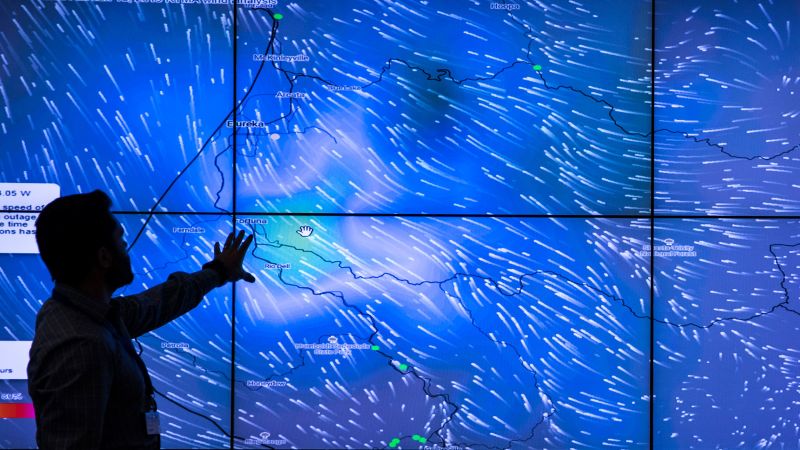
The Rise of 'New Denial' on YouTube: Undermining Climate Action

A look at the shift in tactics of climate deniers on YouTube and the potential impact on public opinion and climate action.
The Shift in Climate Denial Tactics
The tactics of climate deniers on YouTube have undergone a significant shift in recent years, moving away from outright rejection of climate change and towards undermining climate science and solutions. This shift, identified by the nonprofit Center for Countering Digital Hate (CCDH), is a cause for concern as it sows doubt over the science, solutions, and impacts of the climate crisis.
Senior Meteorologist Scott Strenfel displays a screen showing possible problematic spots affected by windspeed while studying data from hundreds of weather station locations across California at PG&E's Technology Center in San Ramon, Calif. Friday, Jan. 18, 2019. (Photo by Jessica Christian/San Francisco Chronicle via Getty Images)
According to a CCDH analysis, the rise of 'new denial' content, which attacks solutions, the science, and the climate movement, now makes up 70% of all climate denial claims posted on YouTube. This is a stark contrast to the decline of 'old denial' claims, such as the outright rejection of global warming, which have decreased significantly.
The analysis also suggests that this shift in narrative could be helping YouTube video creators circumvent the social media company's ban on monetizing climate denial. This strategic shift in tactics is a cause for concern and could have a lasting impact on public opinion and climate action.
The Impact on Public Opinion
The rise of 'new denial' content on YouTube is particularly worrying due to the platform's appeal to a young demographic. With YouTube being the most widely used social media platform among 13- to 17-year-olds, climate deniers now have access to vast global audiences through digital platforms. This accessibility allows them to steadily chip away at public support for climate action, especially among younger viewers, which could have devastating consequences for the future of our planet.
Furthermore, the shift in tactics to undermine climate action could also help creators get around YouTube's policy banning them from making money on climate denial content. Despite the company's prohibition on advertising against content that contradicts well-established scientific consensus around the existence and causes of climate change, YouTube is potentially making up to $13.4 million a year from ads on videos containing climate denial.
This poses a significant challenge for social media platforms and raises questions about the responsibility of these platforms to address and prevent the spread of climate denial content.
Call for Action and Accountability
The findings of the CCDH report have prompted calls for action and accountability from both YouTube and Google. Imran Ahmed, the CEO and founder of CCDH, urged Google to extend their ban on monetization and amplification of 'old denial' content to include 'new denial' as well. This call for action highlights the need for social media companies to strengthen their policies to address and prevent the spread of climate denial content.
In addition to Google, other social media platforms are also being called upon to take note of the report's findings and review their policies. The responsibility of these platforms to refrain from profiting from, revenue sharing, or amplifying clear climate denial content that contradicts scientific consensus is a crucial step in combating the spread of misinformation and disinformation related to climate change.
The rise of 'new denial' content on YouTube underscores the urgent need for a coordinated effort to address and counteract the spread of climate denial narratives, especially on digital platforms with significant influence over public opinion and discourse.













